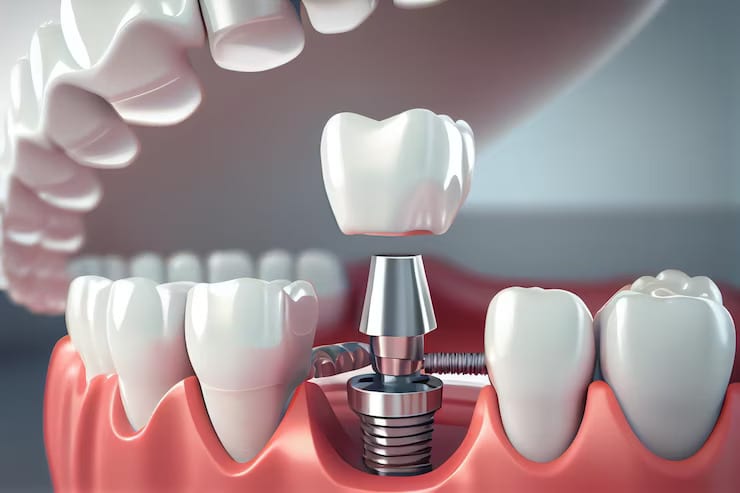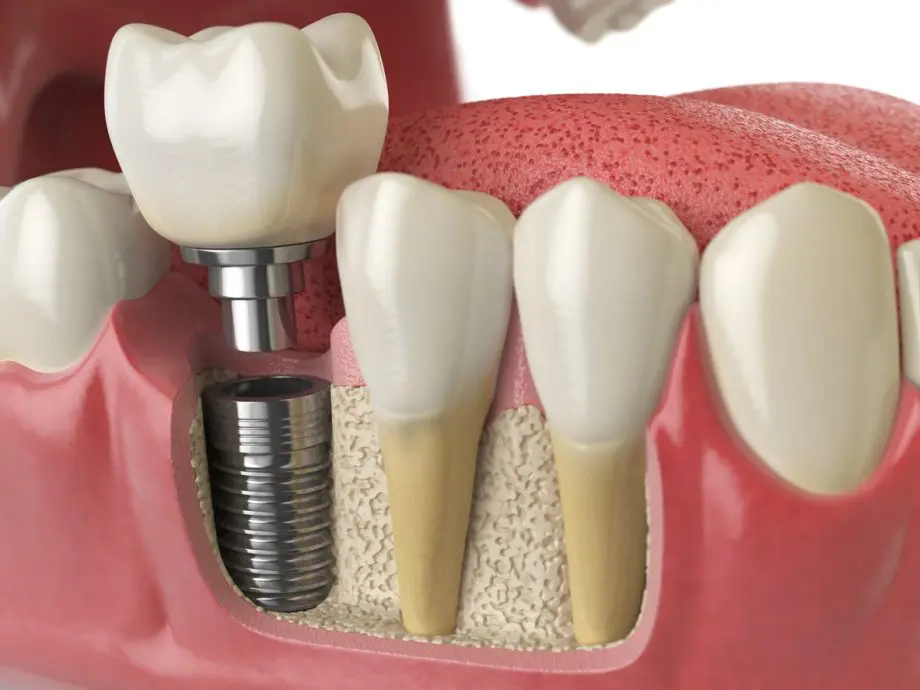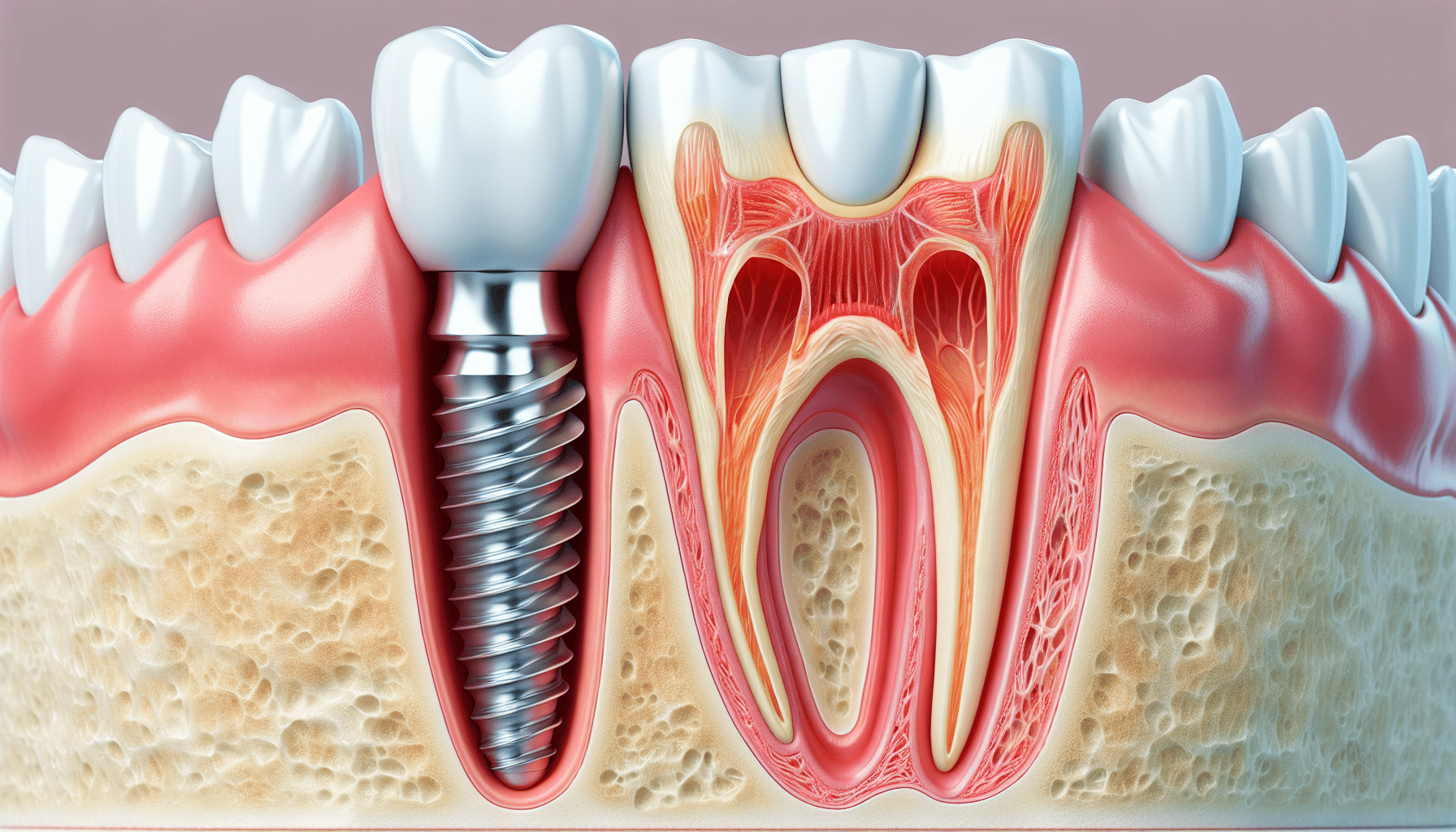Smile Care Johnstown OH Dental Implants for Seniors: Considerations and Benefits
Smile Care Johnstown OH Dental Implants for Seniors: Considerations and Benefits
Blog Article
Mono Dental Implants Pataskala OH The Benefits of Dental Implants: Why Choose Them?
Dental implants have emerged as a preferred selection for people seeking a long-term solution to tooth loss. One essential side of understanding dental implants entails their effect on adjacent teeth. This is particularly important for ensuring the health and longevity of the complete dental structure.
When a dental implant is positioned, it mimics the function of a natural tooth root. By doing so, it helps preserve the integrity of the encircling bone structure. Natural teeth rely on a balanced, interconnected system for support, and dental implants can contribute positively to that dynamic. The stability supplied by the implant allows for higher distribution of chew forces, which may prevent undue stress on adjacent teeth.
Premier Dental Hartford OH Dental Implant Surgery: Procedure, Recovery, and What to Expect
In circumstances where a tooth is missing, the neighboring teeth might shift into the vacant house. This shifting can result in misalignment and various other problems. By putting a dental implant, the chance of this shifting is reduced, as the implant acts as a placeholder that preserves the natural alignment of surrounding teeth. This preventive impact is essential for long-term oral health and performance.
Another important consideration is bone loss. When a tooth is misplaced, the jawbone in the area can start to deteriorate as a outcome of a lack of stimulation. Dental implants help prevent this bone loss by providing the necessary stimulation to the jawbone, much like a natural tooth root would. This preservation of bone not solely helps the implant itself but additionally contributes to the stability of adjacent teeth.
The type of material used in dental implants, sometimes titanium, has a singular property of osseointegration, which means it fuses with the bone over time. This integration provides a sturdy foundation for the artificial tooth while making certain that the implant doesn’t negatively affect surrounding buildings. As the implant integrates, it creates an surroundings that contributes positively to the health of the adjacent teeth.

Regular dental check-ups play an important function in monitoring the impact of dental implants on adjacent teeth. Professional assessments might help establish any issues which will come up, ensuring prompt treatment and maintaining the health of the complete dental arch. These evaluations might embrace X-rays to examine for bone density and the general condition of the implant and surrounding teeth.
Dentists Hartford OH Dental Implants for Seniors: Considerations and Benefits
Oral hygiene practices are very important for individuals with dental implants. Proper brushing and flossing habits not only contribute to the longevity of the implant but additionally ensure that adjacent teeth stay healthy. Food particles and plaque that accumulate around the implant can cause problems, including peri-implantitis, an inflammatory condition that may have an result on surrounding teeth and tissues.
The positioning of dental implants can affect the health of adjacent teeth. If an implant is positioned at an angle or not properly aligned, it may result in increased pressure on neighboring teeth. This misalignment may trigger wear and tear on adjacent enamel, probably leading to cavities or other dental issues. Therefore, the ability and experience of the dentist performing the implant process are paramount in reaching a profitable consequence.
In some cases, extra procedures may be needed to organize the surrounding space for an implant. Bone grafting or sinus lifts may help create a better environment for the implant. While these procedures are geared toward enhancing the positioning for the implant, additionally they serve to protect the health of adjacent teeth by making a extra stable basis.
Pediatric Dentist Granville OH The Advantages, Risks, and Insurance for Dental Implants

As dental know-how evolves, developments in implant techniques result in higher outcomes. Improved imaging techniques and computer-aided design enable for more exact placements that reduce risk to adjacent teeth. With these advancements, the chance of problems that could come up from improperly placed implants diminishes considerably.
Post-operative care also performs a crucial role in making certain that adjacent teeth stay unaffected. Patients must adhere to the dentist's directions regarding food plan, oral hygiene, and follow-up visits. Neglecting these guidelines may lead to issues that impact not solely the implant but also the neighboring teeth.
Smile Care Pataskala OH Common Dental Implant Problems and How to Avoid Them
In conclusion, dental implants, when placed accurately and cared for correctly, have the potential to boost the health of adjacent teeth somewhat than detract from it. They preserve alignment, stimulate bone development, and supply a safe basis that helps the complete dental structure. Understanding how dental implants affect adjacent teeth emphasizes their significance as a long-term tooth replacement solution. With continuous advancements in technology and techniques, the integration of dental implants into restorative dentistry is becoming increasingly successful, guaranteeing wholesome and practical smiles for years to return.

- Dental implants prevent adjacent teeth from shifting into the hole created by a missing tooth, helping to maintain up correct alignment within the mouth.
- The rebuilding of the jawbone through an implant can stimulate surrounding teeth and maintain them wholesome by offering necessary bone density that might in any other case diminish.
- Adjacent teeth benefit from the stabilization that dental implants provide, decreasing the chance of wear and tear and tear from misalignment during chewing.
- Implants can shield adjacent teeth by appearing as a framework, which might distribute chunk forces evenly across the dental arch instead of putting undue stress on neighboring teeth.
- When positioned correctly, dental implants reduce the danger of gum disease which might have an result on adjacent teeth by maintaining a clean and healthy gum line.
- The presence of an implant can facilitate an improved oral hygiene routine, as it eliminates the need for bridgework that would lure meals particles round adjacent teeth.
- Regular dental check-ups can reveal how nicely the implant integrates with surrounding constructions, ensuring ongoing health for adjacent teeth.
- Implants can prevent the natural means of bone resorption that happens after tooth loss, positively impacting the steadiness and longevity of adjacent teeth.
- The use of dental implants would possibly cut back the need for extra invasive procedures sooner or later, offering a long-term answer that maintains the structure of the complete dental arch.
- Successful integration of an implant into the dental arch enhances total oral operate, typically resulting in improved confidence and oral health for adjacent teeth.undefinedHow do dental implants affect adjacent teeth?
What impression do dental implants have on the alignment of adjacent teeth?
Dental implants typically prevent the shifting of adjacent teeth, helping to hold up proper alignment. This stability can reduce the chance of creating chunk issues over time.
Can dental implants cause damage to nearby teeth?
When placed correctly by a qualified professional, dental implants mustn't harm adjacent teeth - Premier Dental Pataskala OH. However, improper placement or insufficient planning might lead to issues
Dental Care Associate Centerburg OH Dental Implant Recovery
Do dental straight from the source implants require any special care regarding adjacent teeth?
Maintaining good oral hygiene is essential. Surrounding teeth should be brushed and flossed regularly, and routine dental check-ups will assist ensure that each the implants and adjacent teeth remain healthy.

Will dental implants official site influence the health of my surrounding teeth?
Dental implants can enhance the health of surrounding teeth by distributing chunk forces evenly, reducing wear and tear. Additionally, they will prevent bone loss within the jaw, which might have an result on adjacent teeth.
Family Dental Clinic New Albany OH Common Dental Implant Problems and How to Avoid Them
Are there any long-term results of dental implants on nearby teeth?
Long-term, dental implants can help protect the health of adjacent teeth by stopping shifting and potential gum issues, ultimately contributing to higher oral health general. - Mono Implants Columbus OH
Can gum problems come up around adjacent teeth after getting implants?
If correct dental care is uncared for, gum issues could develop around each the implants and adjacent teeth. Following post-operative care instructions is essential to reduce these risks.
Dental Center Sunbury OH Your Local Guide to Dental Implants
How do dental implants compare to bridges when it comes to adjacent teeth?
Dental implants are sometimes helpful as they don’t require alteration of adjacent teeth, not like bridges, which necessitate reshaping of nearby teeth for support. (Dental Center New Albany OH)
Can I still get cavities in adjacent teeth check it out if I have dental implants?
Yes, adjacent teeth can nonetheless develop cavities if not correctly cared for. Dental implants themselves can't get cavities, however they require vigilant hygiene practices to guard surrounding natural teeth.
What is the success rate of dental implants in relation to surrounding teeth?
The success rate of dental implants is excessive, however it largely is dependent upon the quality of the procedure and ongoing care. Well-maintained implants often lead to better outcomes for adjacent teeth as nicely.